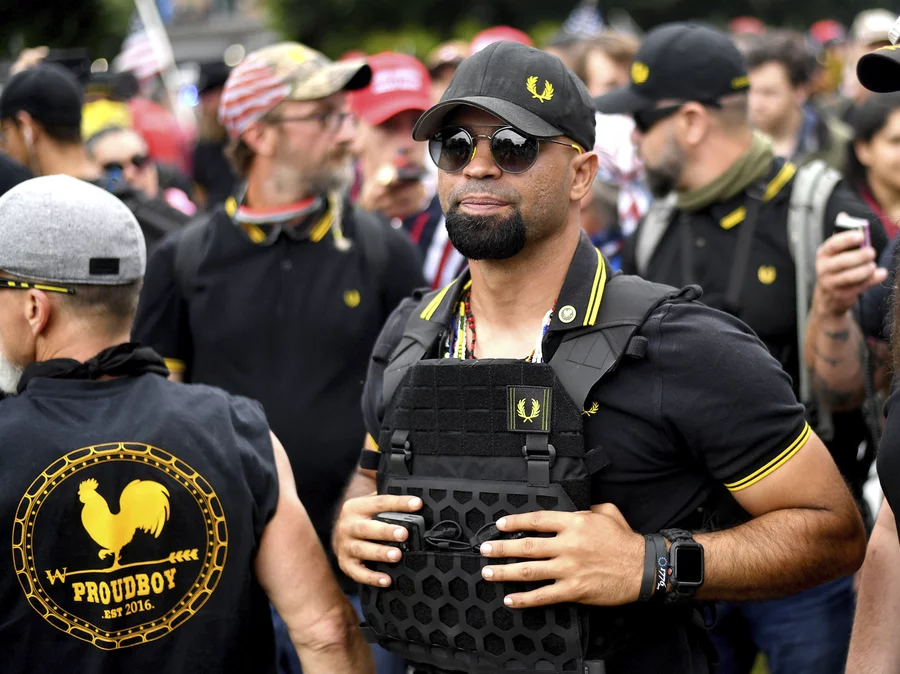Enrique Tarrio, the former national chairman of the Proud Boys, has been handed a 22-year prison sentence for his involvement in the January 6, 2021 attack on the U.S. Capitol. He was one of six Proud Boys leaders charged with conspiring to disrupt the certification of the 2020 presidential election results in Congress, and his sentence is the longest among them.
Originally, Tarrio’s sentencing was delayed due to the illness of Judge Timothy Kelly. Prosecutors had initially sought a 33-year sentence, while Tarrio’s defense team requested a maximum of 15 years. Notably, Tarrio’s co-defendants in the Proud Boys seditious conspiracy case received significantly shorter prison terms than what the government had asked for.
Ethan Nordean, the head of the Seattle chapter of the Proud Boys and a co-defendant of Tarrio, along with Oath Keepers founder Stewart Rhodes, who faced a separate trial, received the lengthiest sentences to date, each receiving 18 years. Nordean was sentenced the previous week.
In May, Tarrio, Nordean, Joseph Biggs, and Zachary Rehl were all convicted on charges of seditious conspiracy and other crimes. A fifth defendant, Dominic Pezzola, was acquitted of seditious conspiracy but found guilty of assaulting, resisting, or impeding certain officers and robbery involving government property.
Like Tarrio, prosecutors sought a 33-year prison term for Joseph Biggs, but Judge Kelly sentenced him to 17 years. Tarrio was also convicted on multiple charges, including obstructing an official proceeding, conspiracy to prevent an officer from carrying out their duties, obstruction of law enforcement during a civil disorder, and destruction of government property valued at over $1,000.
Tarrio was not physically present at the Capitol riot as he had been arrested days before for setting fire to a stolen Black Lives Matter banner from Asbury United Methodist Church in Washington, D.C., and was subsequently ordered to leave the city. Prosecutors argued that from a hotel outside D.C., Tarrio directed Proud Boys members to attack the Capitol in his absence.
Tarrio’s defense maintained that he had no contact with Proud Boys members during the riot and pointed to Nordean and Biggs as the main instigators. They emphasized that merely participating in a plan for the Proud Boys to protest on January 6 was not equivalent to directing others on the ground to storm the Capitol “by any means necessary.”
Despite these significant sentences, experts in extremism suggest that the Proud Boys are unlikely to be greatly affected. Cassie Miller, a senior research analyst at the Southern Poverty Law Center, noted that the group continues to organize, recruit, and grow. The Proud Boys have shifted their focus away from national organizing to local activism on issues such as LGBTQ and abortion rights restrictions, contributing to their continued expansion within the far-right movement.
